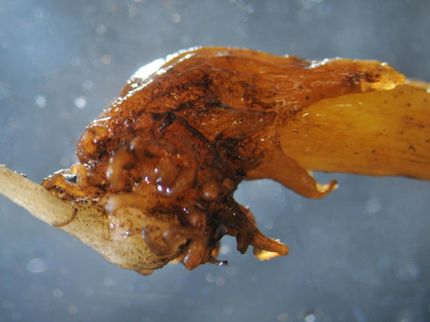Scientists reveal changes to embryonic stem cells caused by Down syndrome
Scientists investigating the mechanisms of Down syndrome (DS) have revealed the earliest developmental changes in embryonic stem cells caused by an extra copy of human chromosome 21 – the aberrant inheritance of which results in the condition. Their study is published in the American Journal of Human genetics.
Lead by Dean Nizetic, Professor of Cellular and Molecular Biology at Barts and The London School of Medicine and Dentistry, the team utilised embryonic stem cells from a previously genetically engineered species of mice carrying a copy of human chromosome 21. They discovered that extra chromosome 21 - a genetic state known as trisomy 21 - disturbs a key regulating gene called NRSF or REST, which in turn disturbs the cascade of other genes that control normal development at the embryonic stem cell stage. Furthermore, they identified one gene (DYRK1A) on human chromosome 21, whose overdose in trisomy (DS) is responsible for the observed effects.
Down Syndrome belongs to the group of conditions called 'aneuploidies', defined by an abnormal loss or gain of genetic material, i.e. fragments of chromosomes or whole chromosomes. Aneuploidies cause congenital anomalies that are a prime cause of infant death in Europe and the USA, and are currently on the increase with advancing maternal age in European countries. The condition is more common than muscular dystrophy and cystic fibrosis, but the development of new therapeutic concepts is hindered by the fact that unlike muscular dystrophy and cystic fibrosis, where a single mutated gene causing the disease is known, the entire human chromosome 21 (containing around 300 genes) still has to be dissected into individual gene-dose contributions to the DS symptoms.
Professor Nizetic, calling for further research into the components of the disturbed cascade he and his team have revealed said; "We hope that further research might lead to clues for the design of new therapeutic approaches tackling developmental delay, mental retardation, ageing and regeneration of brain cells, and Alzheimer's disease. In other words, we hope our work will open new routes to tackle the genetics of these health disorders, approaching them from the "back entrance", as dominant component-symptoms of Down Syndrome."
Most read news
Other news from the department science

Get the life science industry in your inbox
By submitting this form you agree that LUMITOS AG will send you the newsletter(s) selected above by email. Your data will not be passed on to third parties. Your data will be stored and processed in accordance with our data protection regulations. LUMITOS may contact you by email for the purpose of advertising or market and opinion surveys. You can revoke your consent at any time without giving reasons to LUMITOS AG, Ernst-Augustin-Str. 2, 12489 Berlin, Germany or by e-mail at revoke@lumitos.com with effect for the future. In addition, each email contains a link to unsubscribe from the corresponding newsletter.




















































